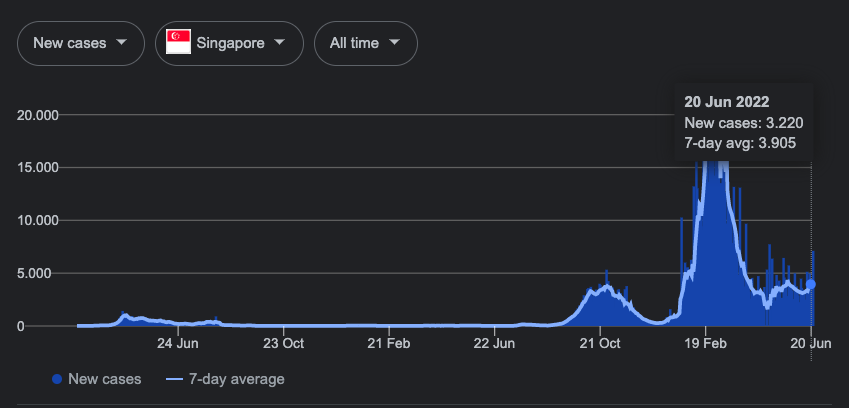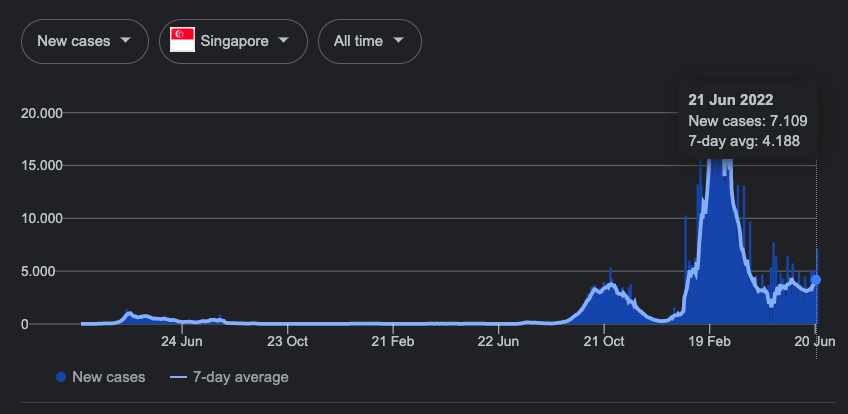Singapore has seen a considerable increase in Covid-19 cases, according to the latest numbers released by the Ministry of Health (MOH), which said on Tuesday (June 21) that there were 7,109 new infections.
On Monday (June 20), 3,220 new cases had been reported. The breakdown of the cases reported on June 21 is as follows: 452 from local PCR tests, 5,941 from local ART tests, 50 from imported PCR tests and 666 from imported ART tests.
The vast majority (99.7 per cent) of Covid cases detected in the past 28 days have shown mild or no symptoms.
At present, there is a 23 per cent week-on-week increase in community cases. This is mainly due to the BA.4 and BA.5 Omicron subvariants, although the majority of the country’s cases are due to the BA.2 subvariant.
MOH noted, however, that the proportion of BA.4 and BA.5 infections, first discovered in May is on the increase.
“The surge in BA.4 and BA.5 cases is likely to continue, driven by their higher transmissibility compared to BA.2,” the ministry added.
Earlier this month, Health Minister Ong Ye Kung said that the next Covid wave may hit Singapore by July or August.


In the previous three weeks, the percentage of BA.4 and BA.5 subvariants had been at three, eight, and 17 per cent. Last week it was at around 30 per cent.
The BA.4 and BA.5 subvariants are behind the current surge in South Africa, and similar infections have been found in different parts of the world.
“BA.5 alone is estimated to contribute to 25 per cent of all cases this week,” MOH said in a June 21 press release.
The ministry noted that the severity of BA.4 and BA.5 infections is similar to that of earlier Omicron variants, based on both international and local evidence.
MOH also noted that there has not been a significant rise in severe Covid-19 cases in hospitals, and the number of Covid patients needing intensive care has remained low.
The home page of MOH indicates that 326 patients have been hospitalized for Covid, among whom 27 required oxygen supplementation and nine are in intensive care units.
However, “public hospitals remain busy caring for non-COVID patients, and many hospitals experience high bed occupancies,” MOH wrote, adding “To ensure that precious emergency department (ED) resources are available to patients who need urgent emergency care, we strongly advise the public to only seek medical treatment at a hospital’s ED for serious or life-threatening emergencies. Patients with minor ailments are strongly urged to seek medical attention at General Practitioner clinics.”
The weekly COVID-19 infection growth rate, which refers to the ratio of community cases for the past week over the week before, grew from 1.17 on Monday to 1.23 on Tuesday.
A figure of more than one indicates that the number of new weekly cases is on the rise. /TISG
Ong Ye Kung: Next COVID wave may hit SG as early as July or August

